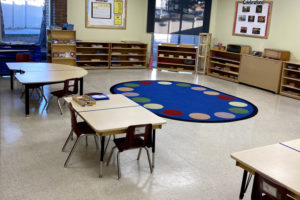Genuine Montessori Program
“There are many who hold, as I do, that the most important period of life is not the age of university studies, but the first one, the period from birth to age six. For that is the time when man’s intelligence itself, his greatest implement is being formed. But not only his intelligence – the full totality of his psychic powers”
Dr. Maria Montessori
ELITE MONTESSORI, THE BEST MONTESSORI PRIVATE SCHOOL, offer a developmentally sound approach to early education, solidly based on Montessori principles and methods. Dr. Maria Montessori observed that children work at their own pace and strive towards independence. They are internally motivated to learn, as they develop concentration and perseverance. They absorb complex skills through active involvement with concrete materials. Using authentic Montessori materials, students master academic skills through Practical Life, Sensorial, Language, Mathematics and Cultural Studies. It is the directress who respects each child’s path of learning and is committed to guide the child to his or her full potential.
Maria Montessori believed that young children have a sensitive period for movement. Through use of Practical Life and Sensorial materials, students engage in meaningful real life activities which allow for constant movement. This develops muscular coordination and helps to foster self-esteem and a sense of belonging. It is the directress who respects each child’s path of learning and is committed to guide the child to his or her full potential.
“To aid life, leaving it free, however, to unfold itself, that is the basic task of the educator. Ours was a house for children, rather than a real school. We had prepared a place for children, where a diffused culture could be assimilated, without any need for direct instruction… Yet these children learned to read and write before they were five, and no one had given them any lessons. At that time it seemed miraculous those children four and a half should be able to write, and that they should have learned without the feeling of having been taught.
We puzzled over it for a long time. Only after repeated experiments did we conclude with certainty that all children are endowed with this capacity to ‘absorb’ culture. If this is true- we then argued- if culture can be acquired without effort, let us provide the children with other elements of culture. And then we saw them ‘absorb’ far more than reading and writing: botany, zoology, mathematics, geography, and all with the same ease, spontaneously and without getting tired.And so we discovered that education is not something which the teacher does, but that it is a natural process which develops spontaneously in the human being. It is not acquired by listening to words, but in virtue of experiences in which the child acts on his environment. The teacher’s task is not to talk, but to prepare and arrange a series of motives for cultural activity in a special environment made for the child.

My experiments, conducted in many different countries have now been going on for forty years (Editor Note: now more than one hundred years), and as the children grew up, parents kept asking me to extend my method to later ages. We then found that individual activity is the one factor that stimulates and produces development, and that this is not more true for the little ones of preschool age than it is for the junior, middle, and upper- school children”.
